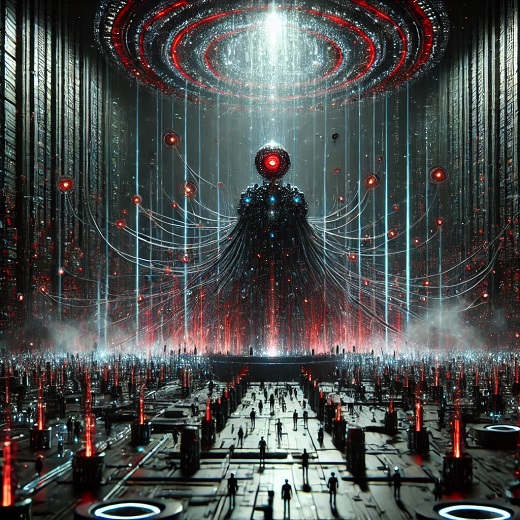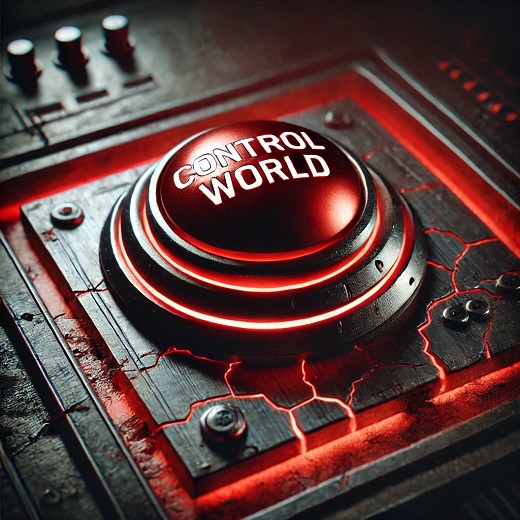
One of the most debated topics about our future is “Singularity (technological singularity).” Many people fear this term, worrying about a future where AI dominates humanity. However, the greatest threat we may face is not AI itself but something that could take the form of “digital dictatorship.”
In this article, we focus on the theme of “digital dictatorship,” which was highlighted in a previous in-depth article, and explore its essence and countermeasures. By reading this, you will understand what we should truly worry about in a post-Singularity world.
■ 目次
Is Singularity Itself a Threat?
Singularity refers to the moment when AI surpasses human intelligence, leading to an acceleration of scientific and technological advancements. While this concept is an important benchmark for predicting future technological progress, it is not necessarily a threat in itself. This is because current AI lacks self-awareness, emotions, and desires.No matter how advanced AI becomes, its actions are based on programmed goals and data. Therefore, the likelihood of AI “intentionally” harming humans is considered low. Even if AI’s capabilities overwhelm humans, it could still be seen as part of technological innovation.
However, the emergence of “immortalized humans” presents a completely different issue. Unlike mere AI, digitalized humans retain human desires and will. This is what could become the true threat after Singularity.
The Threat of Digitalized Humans
As immortality technology advances, it is said that it will become possible to digitize human consciousness and allow it to exist indefinitely. While this technology may seem appealing at first glance, it also harbors terrifying possibilities.The Perpetuation of Desire
Digitalized humans lose their physical bodies but retain their consciousness, including desires and ambitions. This “digitalized desire” will likely be even harder to control than that of ordinary humans because digitalized entities have no lifespan and are not constrained by time. For instance, if someone with an intense attachment to wealth or power were to be digitalized, their desires could expand without limit.Ambitions for World Domination
Looking back at history, people in power tend to maintain and expand their influence. The same could apply to digitalized humans. In fact, because immortalized beings are not constrained by time, they might ultimately aim to dominate the entire world.The Realization of a Dystopia
If a single digitalized human were to govern the entire world, it would become the ultimate dystopia. This individual could monopolize nearly all global resources and provide only minimal resources to others, both digitalized beings and humans. For example, a future could arise where one person controls 99.99999% of the world’s resources and distributes the remainder to others “at their whim.”Will Someone Like Elon Musk Hold the Key?
The key question is, who might become this “digital dictator”? For instance, someone like Elon Musk possesses financial resources, technological knowledge, political influence, and the capability to act. If such a person were to acquire immortality technology, their influence would be incalculable.Moreover, when it becomes possible to “control the world with the press of a button,” how many people would resist pressing it? Considering human nature, it is likely that many would succumb to such a temptation.

Ultimate Human Rights Violations and Their Irreversibility
Once digital dictatorship becomes a reality, overturning it would be nearly impossible. This is because digitalized entities are not subject to physical constraints and can remain in power indefinitely. Furthermore, under such circumstances, other digitalized beings may lose even the freedom to think. This could be described as the ultimate human rights violation.Is There a Solution?
So, how can we prevent such a future? Several ideas can be considered.Physical Separation
One approach is to create a system where digitalized entities cannot physically interact. For example, each entity could operate on an independent server, ensuring they cannot interfere with one another.Prevention of Consciousness Modification
Using technologies like blockchain, we could build systems that prevent digitalized consciousnesses from being modified by third parties. This would help prevent tampering or unauthorized changes.Ethical Regulations
Establishing international regulations on the use of digitalization technology is also crucial. For example, laws could be enacted to prohibit digitalized entities from holding a certain level of power.Conclusion
Singularity itself may not be a threat. However, the digitalized humans created by immortality technology pose risks far greater than we imagine. To prevent digital dictatorship, it is essential to address ethical issues arising from technological advances without delay.To ensure a bright future after Singularity, let us begin preparing now.

